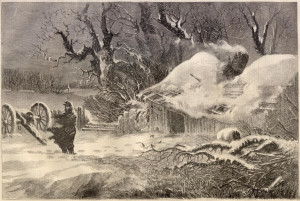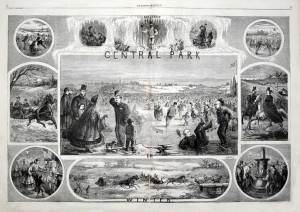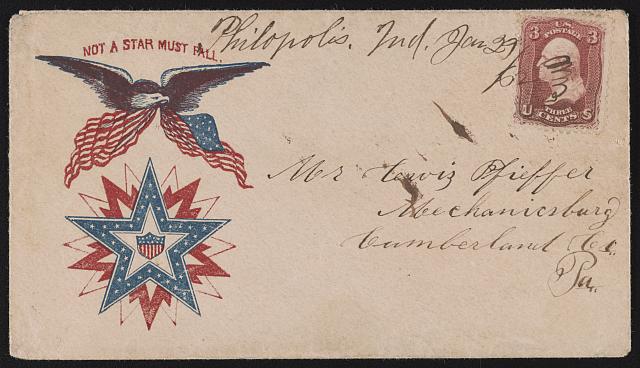Here a Northern newspaper acknowledged the huge contrast between the suffering soldiers and the still luxurious life at home. For all the people in New York could tell, the fighting might just as well have been in China. The least homebodies should do is contribute some money to the Sanitary Commission
From The New-York Times January 24, 1864:
A Contrast Patriotism at Home and in the Field.
Patriotism in the City of New-York, or in any of our home communities, is a comparatively cheap and easy virtue. We go about our business as usual, eat our dinners, entertain our friends, enjoy amusements, and make money very much as we always have done. It is true, we subscribe to the Sanitary Commission, or invest in Governments, or make an occasional eloquent speech on our “glorious Union;” but on the whole, so far as our comfort and ease are concerned, the great American civil war might as well be in China.
And yet, now and then, something comes to remind us of the immense contrast between our inglorious lives and the heroic actions being performed all around us. We hear, for instance, from East Tennessee from corps who have distinguished themselves on many a field; of gentlemen, whom we all know, sleeping on the ground, half barefooted in the snow, living in certain stations on a bit of hard-tack and small rations of pork, and the hardships which have been endured in that remote region by the brave men of our army will probably never be known. Supplies have been forwarded with great difficulty, much confusion has occurred in regard to the trains for particular corps, and the outlying detachments have especially suffered for the want of common necessaries. But even with ample food and luxurious clothing, let the polite reader fancy what picket duty must be on a bleak mountain side, with snow blowing in a gale, and the thermometer near zero, or camping in leaky tents, where no fire can be kept up, and the breath freezes on the beard of the sleeper; or marching through unbroken snow, against icy winds, for days together! But such is the kind of life which thousands of our once luxurious young men are now leading. Their fate is salt beef and hard tack, while we sit at tables loaded with luxuries ; their bed is a blanket, and pine boughs or straw, with rain dripping in or snow sprinkling them, while we are tucked up on our comfortable mattresses.
They have hardship, we, comfort; they hold their lives in their hands every hour of the day, and we expect to reach an undisturbed old age. They have chosen exposure, cold, fatigue, hard fare, the risk of wounds, sickness and death, for the sake of country. We have either chosen ease, luxury, and the making of money, or we have been compelled to continue our former courses of life.
The contrast can never be forgotten. History will not forget it; and a people, above all, sensitive and grateful to heroic and patriotic services, will never suffer it to go out of mind. Whatever rewards the republic has to bestow, will, for the next generation at least, be given to those who have served her in the field.
This contrast, which, though so often repeated, must even now make the cheeks of thousands of our young men tingle with shame, should arouse every one who is enjoying the blessings of home to new efforts for the army.
Certainly, the least we can do is to contribute clothing and medicines and hospital stores to our brethren in the field, the camp and the hospital. To lighten the pangs of the wounded, to soften the pains of the sick, and smooth the pillow of the dying, is but the simplest duty for the great multitude for whose homes and children these brave men have suffered and bled. No individual — man, woman or child — in all classes of society that have a single luxury, should suffer this Winter to pass without contributing something to the great agency for supplying the wants of the army — the Sanitary Commission. There cannot be extravagant contributions to such a, charity, and nothing but absolute penury can excuse from aiding it.
The images above were published in the January 30, 1864 issue of Harper’s Weekly at Son of the South.



